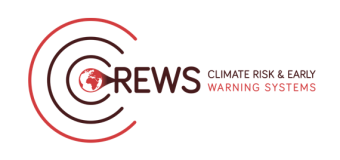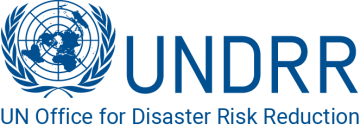CREWS Djibouti
现在的情况
The four-year Climate Risk and Early Warning Systems Initiative (CREWS) Djibouti project – with USD 3.6 million in funding – aims to enhance the capacity of Djibouti’s national hydrometeorological and disaster management agencies. Jointly implemented by the World Meteorological Organization (WMO) and the United Nations Agency for Disaster Risk Reduction (UNDRR), the project seeks to improve the production, delivery, and dissemination of Multi-hazard Early Warning Systems, enabling better preparedness, early action, and response to hazardous hydrometeorological events impacting Djibouti.
The project is structured around six key outcomes: improving the service delivery of the national meteorological agency (ANM) and the Center for Research Studies of Djibouti (CERD), developing and making accessible risk information to guide early warning systems, strengthening information and communication technology, enhancing preparedness and response plans with operational procedures for early warning dissemination, creating knowledge products and awareness programs on early warnings, and providing gender-sensitive training and capacity-building programs.
The CREWS Djibouti project is expected to contribute significantly to building resilience and reducing vulnerability to climate-related risks in Djibouti, supporting sustainable development and safeguarding communities against the impacts of climate change.
范围
Strengthen the capacity of national Djiboutian authorities to produce, deliver and disseminate Multi-hazard Early Warning Systems, preparedness, early action and response to hazardous hydrometeorological events impacting the country.
目标
Component 1 – ANM’s and CERD’s Service Delivery Improved
- Output 1.1: Institutional and human capacities of ANM and CERD are strengthened.
- Output 1.2: Enhanced capacity by ANM to provide weather and early warning information.
- Output 1.3: Strengthened co-production between producers and users to develop innovative, accurate, tailor-made weather and climate products (including EWS).
- Output 1.4: Strengthened hydrological monitoring network and forecasting capabilities for effective early warning systems for floods.
Component 2 – Risk Information to Guide Early Warning Systems and Climate and Weather Services Developed and Accessible
- Output 2.1: Improved access to risk information through enhanced data platforms and stakeholder capacities.
- Output 2.2: Strengthened national capacities in Djibouti for disaster risk knowledge.
Component 3 – Information and Communication Technology Strengthened
- Output 3.1: Development of ANM’s and CERD’s technical and community outreach capacities.
- Output 3.2: Enhancing monitoring and observational data exchange.
- Output 3.3: Communication of EWS improved.
- Output 3.4: Enhancement of basic observing and forecasting infrastructure to ANM.
Component 4 – Preparedness and Response Plans with Operational Procedures that Outline Early Warning Dissemination Processes Strengthened and Accessible
- Output 4.1: Ensure warning communication and dissemination systems reach local communities, including seasonal populations and those in remote locations.
Component 5 – Knowledge Products and Awareness Programmes on Early Warnings Developed
- Output 5.1: Knowledge products and publications developed.
Component 6 – Gender-Sensitive Training, Capacity Building Programmes Provided
- Output 6.1: Mainstreaming gender and disability developed.
- 地区:
- Region I: Africa


- Disaster Risk Reduction
- Climate Resilience and Adaptation
- Capacity Development
- Governance
- Forecasting
- Service Delivery
- Early Warnings
- Observations



